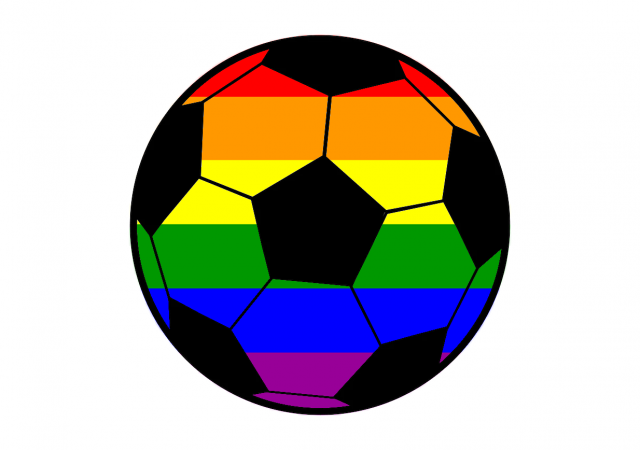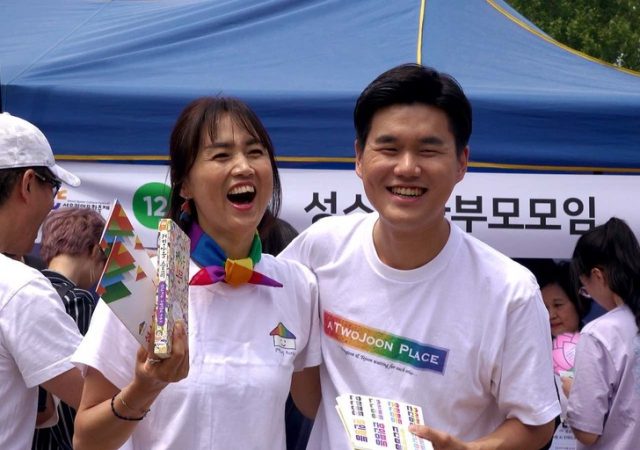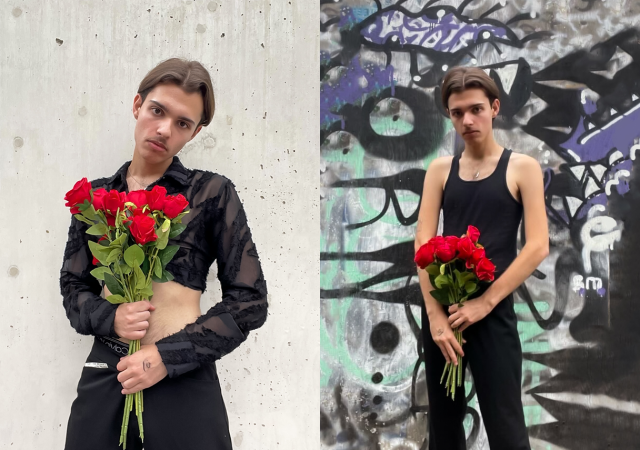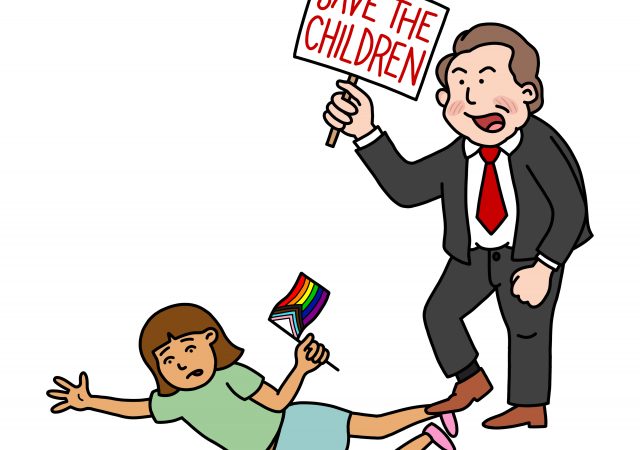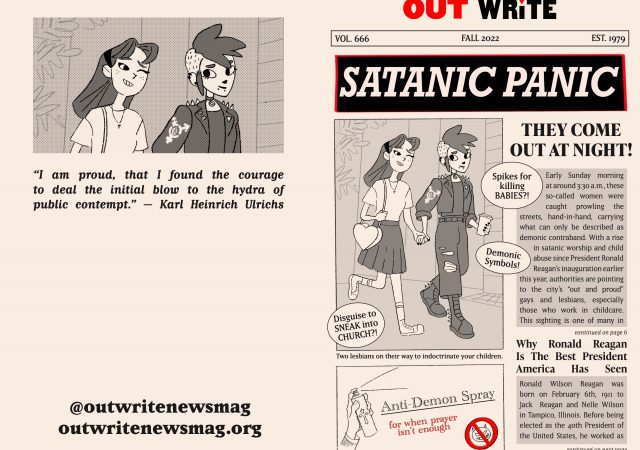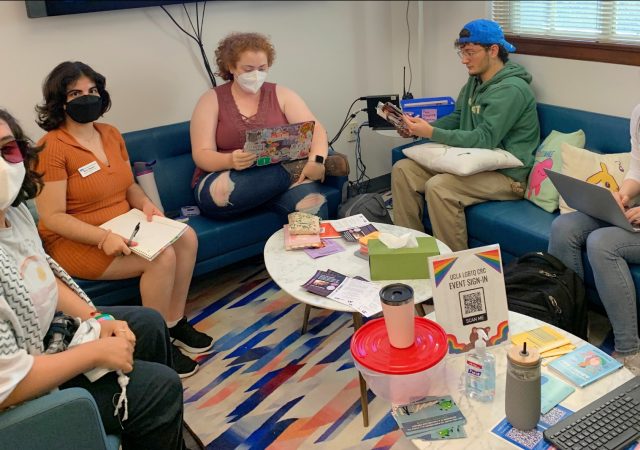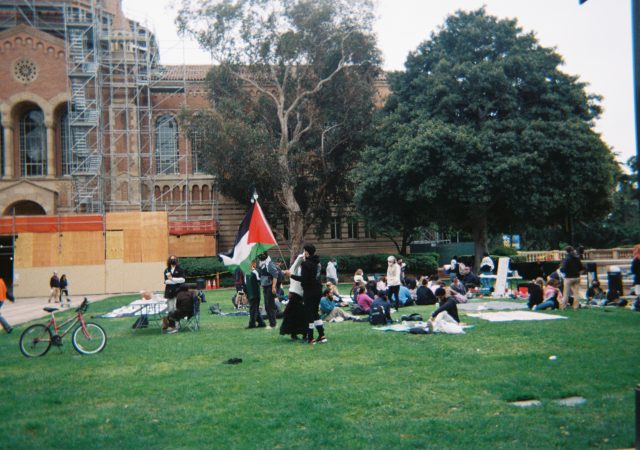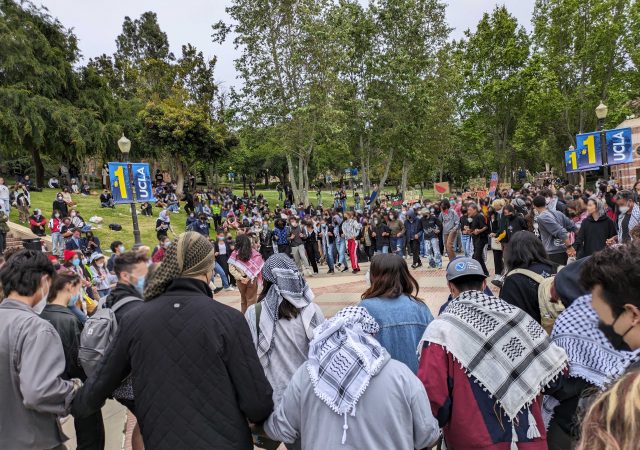When you think of furries, what comes to mind? Fursuits? Furry porn? People with cat ears being walked on leashes? Comparatively, when you think of us queers, what comes to mind?
The Hard Choice
Being my authentic self was never the hard choice; it never was a choice at all. It was just me.
FIFA Banned Rainbow Armbands at the World Cup: Here’s How Players Showed Pride Instead
In late June, eight armband designs were revealed that 2023 FIFA World Cup players could choose to wear on the pitch, including “Unite For Indigenous Peoples,” in partnership with United Nations Human Rights, and “Unite For Ending Violence Against Women,” in partnership with UN Women. However, despite the tournament’s theme of “Football Unites the World,” FIFA banned the “OneLove” armband or any armbands including Pride Flag imagery. This is ostensibly without reason; unlike Qatar which hosted the 2022 World Cup, the 2023 host countries Australia and New Zealand don’t criminalize LGBTQ+ people. Players receive a yellow card — a warning that could bar future participation — for wearing rainbow armbands, as was the case at the 2022 World Cup in Qatar.
A New Sort of Sin: A Study on Historic Connections of Lesbians to Satanism
In the broader scheme of American history, the Satanic Panic was one of many moral panics that got mainstream culture whipped up into a frenzy about the supposed threatened integrity of the ideals they held near and dear to their hearts. These moral panics were often a misdirected reaction to underlying issues; the public’s reaction to this was often to scapegoat other groups to deflect from the true cause of these issues. In America during the 1980s, the sexual abuse of children was finally being confronted after years of being ignored; and the public’s response to that frightening prospect was to turn to an equally frightening cause (to deflect from the more uncomfortable idea that it was really people they knew and trusted that were sexually abusing their children): Satanists.
Being My Mother’s Son: A Review of Queer Korean Documentary “Coming to You”
On May 5, 2023, UCLA screened “Coming to You” (“한글: 너에게 가는 길”) directed by Gyu-ri Byun (she/her), a groundbreaking Korean documentary about the mothers of queer adults in Korea. The documentary centers on the mothers, Nabi (she/her) and Vivian (she/her), who are members of PFLAG Korea (Parents, Families and Allies of LGBTAIQ+ People in Korea). Both women are cisgender and heterosexual. Prior to their children coming out to them, they held little to no knowledge about the queer community and harbored discriminatory opinions about queerness. Nonetheless, the documentary made no excuses for their past queerphobia and followed their journeys into wholehearted queer activism.
Queers Kill Cats, Too: A Review of “Gummo”
Harmony Korine’s 1997 directorial debut “Gummo” is one of those movies that gets swallowed up by its own images. More than any plot event, people remember “Gummo” for the bathtub spaghetti scene, the Bunny Boy’s hat, and the unique shape of Jacob Reynold’s head as Solomon on the film’s box art. This is strange, though, considering that the film itself aspires to be so much more. Revisiting “Gummo,” it reads as an attempt to address as many social and political issues as possible by slotting them into the film’s Midwestern setting. Over the course of its runtime, “Gummo” explores themes ranging from sexual assault to racism to misogyny to ableism and eventually to homophobia, transphobia, and beyond, all to wildly varying degrees of success.
Anonymous, Anonymous
I have this dream of dying in complete silence, and when the neighbors call to complain about the smell a few days later (and the firemen kick the door in), they’ll find my mother sitting calmly at the dining room table, knife in hand around a halo of sunburnt faces cutting branches from the family tree
Think of the (Straight) Children
In 1977, orange juice spokeswoman Anita Bryant campaigned against a new anti-discrimination law protecting gay men and lesbians in Dade County, Florida. She had it overturned and riding on the wave of this success, started Save Our Children, the United States’ first national anti gay group.
Letter From The Editor (Fall 2022)
I wish I could welcome you with nothing but vigorous optimism, but the precariousness of my community’s position in this country is too important to be waved away. As a historical queer publication, it is our responsibility to make sure the most marginalized do not go unnoticed. The theme of our Fall 2022 print edition is Satanic Panic, named after the hysteria of the late 20th century that cast a dangerous shadow over queer people everywhere.
Scissor Me, Daddy Ass: Queerness, Homophobia and the Acclaimed
The queer messaging of the Acclaimed — the two tag team champions for the professional wrestling company All Elite Wrestling (AEW) — veers in enough different directions that it’s hard to pick out a unified message. The fictional world of wrestling, whose staged theatrics and over-the-top characters often shade towards campiness, complicates the real-world impact of that message even further.



